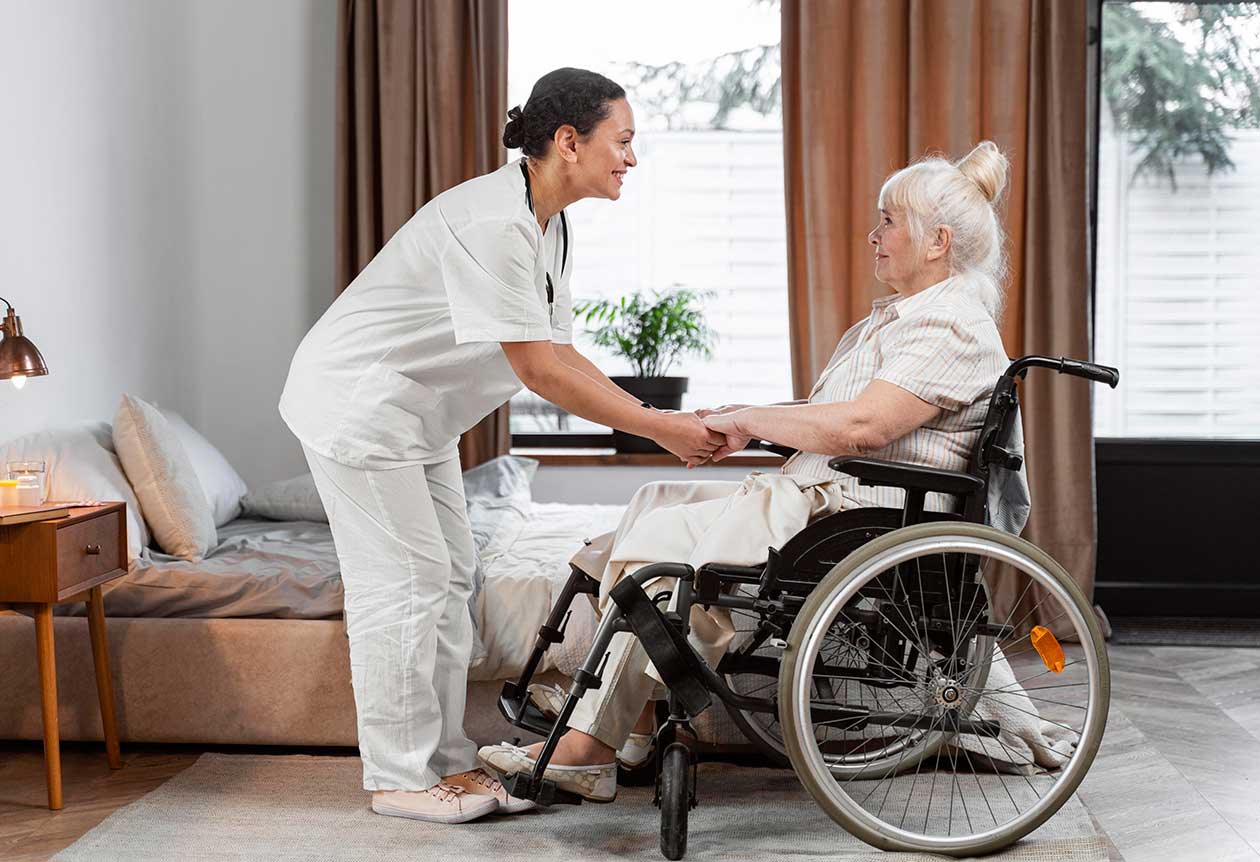Top tips for an enjoyable senior travel
- Admin |
- June 27, 2023
Travel requirements and preferences can change significantly as we age, regardless of whether you are a seasoned globetrotter or...
Read more
In assisted living facilities, respite care is a short-term care option for elderly people who need help with daily tasks.


In assisted living facilities, respite care is a short-term care option for elderly people who need help with daily tasks. Respite care, which can last from a few days to a few months, gives family caregivers the chance to tend to personal needs and other duties in the knowledge that their parent or loved one will receive the best care possible in a friendly and welcoming environment.
Family caregivers who require short-term relief from their caregiving duties are the main target audience for respite care services. While rewarding, giving care to a loved one can also be demanding and exhausting. Seniors who receive respite care also benefit from having a supportive, secure, and empowering community where they can receive care from qualified team members, participate in a variety of activities, and maintain their independence and level of care.
Seniors can maintain their preferred way of life while receiving support catered to their needs with respite care. Care plans are tailored to the individual so that every day reflects those values and preferences. Seniors can explore new activities and socialize, while caregivers can pursue their own objectives and concentrate on their well-being.
Depending on the preferences or needs of the senior or caregiver, there are various types of respite care available.
Trained caregivers give primary caregivers short-term relief. They help with managing medications, companionship, daily tasks, and more.
This type of care offers relief to family members and other caregivers of terminally ill seniors receiving hospice care. This enables the senior to receive specialized end-of-life care while the primary caregiver takes a break.
This type of care gives caregivers the chance to take vacations, concentrate on personal objectives, or simply take some time off from the responsibility of caring for others. Caregivers can reconnect with friends and other family members, rest, and keep up their physical and mental health. Burnout and guilt are all too common among caregivers. A family member may receive a much-needed break if you give them the gift of respite.
Seniors who use this kind of care will spend a brief time in an assisted living facility. Seniors have access to social and recreational activities as well as care and support 24 hours a day.
The length of a respite care stay can vary depending on the needs of the caregiver and the senior they care for. Short-term respite is a temporary relief for a caregiver to rest or attend to personal matters. In addition to receiving the same high-caliber care that they are accustomed to, seniors also benefit from scheduled activities and socialization. Long-term respite describes weeklong or monthly stays in a community that give a caregiver ample time to concentrate on other aspects of their lives.
Costs for respite care can vary depending on where you live and how long you stay. For comparison, the starting daily rate for each of the three categories of care—independent living, assisted living, and memory care—is $85 per day. Costs associated with respite care and assisted living are regrettably not regarded as medical in nature and are not, therefore, covered by Medicare. For low-income seniors who meet the criteria, Medicaid may be used to pay housing-related expenses in some states. You can get more specific information on these benefits and other coverage details from your state’s Department of Health or Department of Aging.
Find the nearest Heritage Care Home respite care facility and take some time for yourself today.

Travel requirements and preferences can change significantly as we age, regardless of whether you are a seasoned globetrotter or...
Read more
Dogs are excellent elderly companions. Dogs are a delight to share a house with because of their amusing, devoted, and adorable personalities...
Read more
Any age can find dating intimidating, but older adults in particular. The majority of people only date once...
Read more
In assisted living facilities, respite care is a short-term care option for elderly people who need help with daily tasks...
Read more
The majority of Americans eagerly look forward to retirement. Many people have distinct memories of traveling, exploring the nation...
Read more